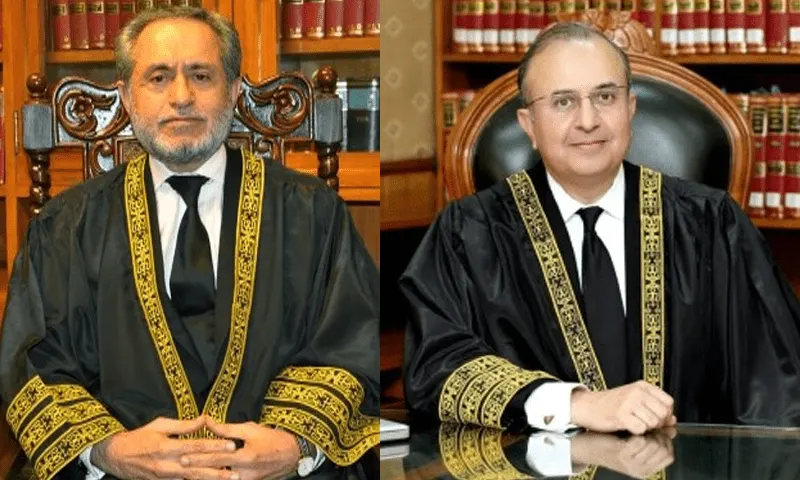Two judges of the Supreme Court Justice Syed Mansoor Ali Shah and Justice Jamal Khan Mandokhail on Monday issued a 27-page order on Monday, stating that the suo motu case regarding the Punjab and K-P elections date announcement was dismissed by a majority of four judges out of seven.
The two judges aimed to “revisit the power of the one-man show enjoyed by the office of the Chief Justice of Pakistan” in order to “strengthen” the institution and “ensure public trust and confidence” in the apex court.
The order stated that the court could not be dependent on the solitary decision of one man but should be “regulated through a rule-based system approved by all judges of the court under Article 191 of the Constitution”.
“In regulating the exercise of its jurisdiction under Article 184(3) including the exercise of suo motu jurisdiction; the constitution of benches to hear such cases; the constitution of Regular Benches to hear all the other cases instituted in this Court; and the constitution of Special Benches,” it stated.
They maintained that the “power of doing a “one-man show” is not only anachronistic, outdated and obsolete but also is antithetical to good governance and incompatible to modern democratic norms”.
“One-man show leads to the concentration of power in the hands of one individual, making the system more susceptible to the abuse of power. In contrast, a collegial system with checks and balances helps prevent the abuse and mistakes in the exercise of power and promotes transparency and accountability… We must not forget that our institution draws its strength from public perception”.










